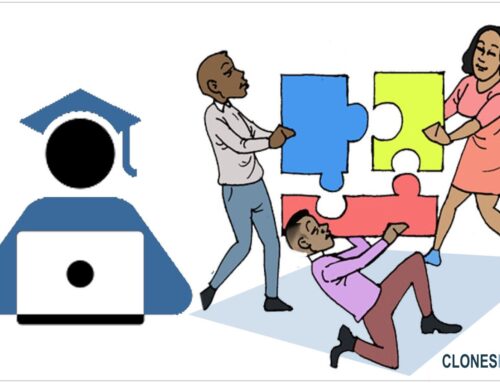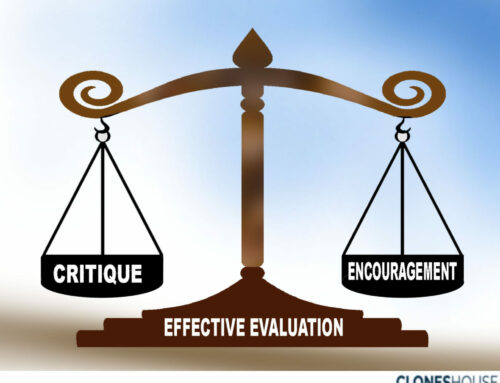Micro, Small and Medium Enterprises (MSMEs) in Nigeria account for 84% of the total labour force in the country and its contribution to the Nation’s Gross Domestic Product in nominal terms stood at 48.7%. (MSME Survey, 2013). However, the outcomes in terms of economic figures are still not lifting people out of poverty because MSME owners still live in the shadows of the State while the regulating agencies lack the will and capacity to provide intellectual capital for this promising sector. In the last few days, Cloneshouse Nigeria has been providing capacity building activities with four start-ups providing MSME support to over 200 other MSMEs in Ogun, Niger and Plateau state, through the Deutsche Gesellschaft für Internationale Zusammenarbeit (GIZ) and Federal Ministry of Budget and National Planning Pro-Poor Growth and Promotion of Employment in Nigeria (SEDIN) Programme. In this article, I will discuss lessons learnt from my intense training on organizational development, and project management with Lead Resources, Plateau State Microfinance Development Agency (PLASMIDA), Technology Incubation Center in Niger State, and the African Youth Empowerment in Agriculture and Industrial Development (AYEAID).
| MSME Size/Category | Total Workforce | Capital/Asset (Naira) |
| Micro Enterprise | Less than 10 | Less than 5 million |
| Small Enterprise | 10 – 49 | 5 million to less than 50 million |
| Medium Enterprises | 50 – 199 | 50 million to less than 500 million |
MSMEs categorized by their workforce and total asset (MSME Survey, 2013)
As a prelude, it might be noteworthy to state that several policy briefs and survey reports of MSMEs have pointed out that the challenges to the sector include access to finance and poor infrastructure, inconsistency in government policies, poor support (business development services), access to market, multiple taxation and obsolete technology. These are basic fundamentals which allow businesses to thrive in any society, and since the turn of electoral democracy in 1999, each government has tried tackling the menace. Nevertheless, this piece pivot at some forward-thinking approach which is a divergence from the norms that one get from response on challenges of the sector.
Entrepreneurship should deliver jobs, and sustainable income, and to achieve these entrepreneurs need to spark up their innovation engine – Imagination, Knowledge, Resources, Attitude, Culture and Environment.
Firstly, let us look at the Capacity of the Entrepreneur to “Win” in this competitive Era. In Nigeria, there are about 37,067,416 MSMEs as at 2013. That’s one enterprise to five people with the current population estimate. This might look ridiculous – in terms of the number of how many people truly own MSMEs, the existence of such MSME and the reason the MSME was registered at first. This data could be misleading, as to say there should not be any new MSMEs in Nigeria, which in reality might not be considerable. Does it bring us to the question of why do people start-up? I was surprised when one of the clients mentioned that, at times, they are expected to deliver 2,000 entrepreneurs within 6 months in their state. Delivering means registering sole proprietors and providing them with some cash transfers to start. They said this happens mostly during the election period, where the supporting institution is owned and managed by the state. What about owners of businesses that are not influenced by government politics, can one establish the motive behind starting a business. In a country where 18.8% of the total workforce population is unemployed, it is highly likely that anyone can take entrepreneurship as a leisure activity. Entrepreneurship should be more than this. It should deliver jobs, and provide income that is sustainable, and to achieve these entrepreneurs need to spark up their innovation engine – Imagination, Attitude, Knowledge, Resources, Culture and Environment as highlighted by Tina Seelig in her 2012 Crash Course on Creativity.
Tina Seelig’s Innovation Engine. What every entrepreneur needs!
Secondly, Nigeria businesses do not Scale. As part of the training with the MSMEs, we focused on organizational development, and I could understand the inconvenience in the room when we all come to the conclusion that Nigeria might not need more start-ups or entrepreneurs, it needs startups that need or want to provide services at scale. Like Plato pointed out in his theory of forms, that every human being has an idea, but the one with value is the one that can transient the environment in which it was created. According to the 2013 Survey conducted by the National Bureau of Statistics and Small and Medium Enterprises Development Agency of Nigeria, 97% of all Micro-enterprise have a sole proprietorship legal status and the source of their start-up capital is from savings or family. This means most businesses in Nigeria are owned by one person and as such the business risk is high.
Nigeria might not need more start-ups or entrepreneurs, it needs entrepreneurs that want to provide services and product at scale.
By 1967, the late Timothy Odutola, had begun production of tyres and tubes which did so well that he added a $1,700,000 plant, with the plan to harvest his own rubber from his 5,000-acre plantation. Chief Obafemi Awolowo, at one point, advised him to expand the business, which will allow the production to attract more investment and a competent board of directors, in order to steer the business into a sustainable path. He declined, with the notion that “it is my business, and wouldn’t allow anyone to bring other ideas”. Five years later, the company went moribund. By 2016, Nigeria’s import of tyre from India, United States, Thailand and Indonesia reached $1.14 billion. Nonetheless, it is not to state that every small business must scale, but they must understand their market segmentation, and opportunities that abound.
Source: The Observatory of Economic Complexity
The tyre business would have employed many Nigerians while providing sustainable income. All entrepreneurs need to understand that there are stages of growth for every initiative, and if Nigeria needs more income to save the plight of its 88 million people that are poor, we must start to think to scale. Thinking about making your services available to many, will also mean attracting more investors other than government lending agencies, as there are appreciable angel investors and capital ventures hoping to invest their money in developing countries.
Lastly, to protect home-grown businesses, and provide indigenous business support services, regulating agencies need to step up their oversight functions of MSMEs. Not only by guiding against bad – loans but by improving the knowledge and resources highlighted in the two points above. Start-ups create ideas that are changing our lives for the better, while not understanding the organization development part – which is very important for start-ups to succeed. During the training, we concluded that most MSMEs knows government agencies only provide loans or grants, as such it has become a tradition not to look out for continuously added value services that can be provided for MSMEs products, project and services.
To protect home-grown businesses, and provide indigenous business support services, regulating agencies need to step up their oversight functions of MSMEs.
In Nigeria Central Bank of Nigeria (CBN), SMEDAN, Development Bank of Nigeria (DBN), and Bank of Agriculture (BOA) provide different instrument for providing services to MSMEs. For example, the Anchor Borrowers Programme of the CBN, Grow and Earn More (GEM) of the BOA, and a list of others. As one of our participants put it that you cannot give what you do not have, meaning that some of the agencies are incapacitated to carry out system thinking and organizational development for MSMEs in Nigeria. On scaling businesses, entrepreneurs could argue succinctly and give reasons that the Nigeria business environment, created by policymakers, doesn’t allow for scalability. It is in this vein, that regulators need to start thinking of also providing incentives in the form of intellectual and human capital support to entrepreneurs.
Stacked plot showing the distribution of MSMEs by State. Source: SMEDAN and National Bureau of Statistics Collaborative Survey: Selected Findings (2013). You can interact with and download the data here
As Tarp et al had put it in Made in Africa- Africa businesses need to become more competitive, especially where high purchasing power is needed to take a bit of the Market. Can a country, like Nigeria with poor learning outcomes produce entrepreneurs whose product can compete in this market-driven world? Maybe no. Can it improve its business environment – maybe yes. If half of the current number of MSMEs are working efficiently, each one will recruit 10 Nigerians, and maybe productivity will double with the right business environment that incentivizes merit over nepotism. It was great to be supporting these MSMEs, but whether this will be sustainable, one will get to know in a future that is so near!




